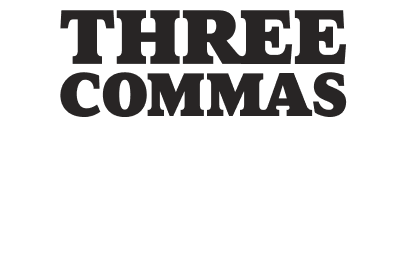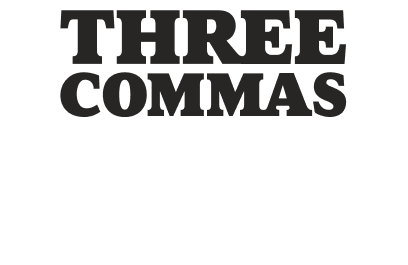Airbnb is the online travel platform that has become – in less than a decade – the largest provider of accommodations in the world. Not Hilton. Not Sheraton. Not Holiday Inn – not any part of the $500 billion hotel industry.
Leigh Gallagher is the first to write a book on this incredible entrepreneurial adventure, with the company’s current valuation at $30 billion (that’s very close to Marriott).
Her book, The Airbnb Story, tells the tale of a wacky idea that was unlikely to succeed. The cast of characters includes regulators wanting to curb its rise, a cottage industry of entrepreneurs making big-time cash while Millennials found new places to crash. Overall, Airbnb introduced a unique way to see the world.
Leigh is an assistant managing editor at Fortune magazine. She is also a co-chair of the Fortune Most Powerful Women Summit and oversees Fortune’s 40 Under 40 editorial franchise. Her first book, The End of The Suburbs: Where The American Dream Is Moving, has been called “prophetic.”

Here, she tells Three Commas about the Airbnb backstory.
RON: What drew you to the Airbnb story? I’m sure it was begging to be told.
LEIGH: Well, that was part of it. There hasn’t been a book written about this company yet, and it’s such an incredibly disruptive story. It’s a social and business phenomenon. A lot of people know the basic origins of the story, but once I got into it, there was so much more.
RON: The story was filled with irony and unexpected twists and turns.
LEIGH: Airbnb started as a fringe idea that no one thought would work. And it not only became successful, but it became one of the biggest privately held startups of this current wave of tech euphoria.
From that alone, I thought it merited a deeper study, but you add on the fact that it was started by three outsiders, almost accidentally. Nobody wanted to touch it. Everybody thought it was a crazy idea.
RON: The Airbnb team was not even the first to come up with the idea.
LEIGH: Upon further study, I found that there were many companies who basically rented out homes. The question is: why did Airbnb take off?
It’s a combination of things. Part of it is that they put everything on the same platform in a very user-friendly way. You can’t really overstate how important that was. Part of the design was building the payment right into the platform so, in one click, you can make a booking. That was new.
Another understated point of difference is that Airbnb was urban at the beginning. It was an urban phenomenon whereas all the others – except for maybe Craigslist – were vacation rentals at beaches and mountain towns. Airbnb saw themselves as something quite different. The consumer did too. That’s why they took off with Millennials.
You didn’t have to own the property to profit from it. You could be the renter of a little studio, and you could suddenly monetize that property for yourself.
RON: The word “disruption” is really appropriate here. This could have been the biggest disruption of all, right?
LEIGH: It really was. The word today could get overused, but it’s a classic case of disruption. Because it was so unexpected – because it came from the least likely people you would expect – an idea that would disrupt the hospitality industry.
You have this business that has been around for centuries – the hotel industry – that has been completely upended by Airbnb.
At first, [the hotel industry] was very dismissive of it. It took a long time for them to consider it a threat. They still say it doesn’t really compete with their business, which is a very hard case to make. And the bigger Airbnb gets, the more it disrupts the hotel industry.
The true sign of disruption is when the giants being disrupted start to adopt the same product that the disruptor has brought to the table. And we’re absolutely seeing that with hospitality right now.
RON: Could the success of Airbnb be a generational thing? As an aging baby boomer, I really like my hotel, with its amenities and a pool. I’m not sure I would happily adapt to this model.
LEIGH: It definitely started out as a Millennial thing, and it still very much is. I think a big part of the reason as to why it took off is that they have different values than the rest of us have.
I spoke with a former hotel executive in his 40s and he said, “I completely missed this. I thought, ‘why would anybody want to do this?’” He said that he imposed his 40-something values and biases onto this idea, whereas the Millennials -- for one thing, they are obsessed with everything being artisanal and local and adventurous and different. They are somewhat distrustful of large organizations. For them, it is not so weird to have a relationship that is forged “digital only” and then to bring it into the real world. It’s not so much of a stretch for them to go sleep in the room of someone they only recently connected with online. For the rest of us, it took a long time for people to go with that.
RON: But there are plenty of non-Millennials who find Airbnb to be fantastic.
LEIGH: There is a woman in my book who is a suburban mother of three in Alpharetta, Georgia. She loves Airbnb and uses it all the time. She convinced her husband to use it, and he was very reluctant. As she says in the book, he loves his “American bathroom.” They went to Europe [using Airbnb], and now they do it all the time. Her friends in Georgia think she’s crazy. They would much prefer the air-conditioned Hilton. She would much prefer to go to a charming garden apartment and sit outside and talk to the person who lives there and can tell her where to go. It’s not for everyone, but it’s for many more people than you might think.
RON: You got to talk with Airbnb founder and CEO Brian Chesky. Has success changed him?
LEIGH: He educated himself on how to become a CEO. He went to all corners and all sources of the business world to do this. He shamelessly asked mentors from Jeff Besos to Warren Buffet, all these leaders. But he has a natural affinity for ring-leading and leadership.
He would say that what was harder for him was actual management: having difficult conversations with people, hiring people, letting people go. He has much more on his plate now then he did when I first met him, but he’s managed to scale as a leader.
I think that is an interesting playbook because we’re going to see more cases like this, where people who don’t come from traditional business backgrounds suddenly find themselves in these type of positions.
RON: For Airbnb, it hasn’t been all success all the time. There are some crazy stories of major fails.
LEIGH: Things have gone wrong. There have been some horrible accidents. There have been some deaths. Very bad things have happened. There is no way it’s going to be perfect. It’s impossible.
I have a story in the book about a family in New Jersey who rented out their home. There was a golf tournament coming to town and they thought they were renting to a golf writer from Golf Digest, and it ended up being a humungous party for 400 people. There was a DJ and tickets sold. Nobody got hurt and there wasn’t even much property damage, but there are all kinds of opportunists out there. It’s a public platform. So it’s a risk.
Airbnb tends to get headlines. This is the brave new world, and we should be alert and aware that these things can happen.
RON: What has been the hotel industry’s response to Airbnb now that we’re past the startup stage?
LEIGH: They still try to say that they had a record year last year, and Airbnb has been saying this too. But [the hotel industry] is finally starting to recognize that this is something that struck a chord, and it struck a chord with consumers for a reason.
So now, the industry is experimenting with its own ways to dip a toe with this idea. They even have a new name for this sector of the market – they call it alternative accommodations.
RON: It’s astounding that people are actually making a living – a good living – with Airbnb.
LEIGH: There are a lot of people making a living on Airbnb.
I have a few hosts in the book who are making six-figure incomes. Some people buy multiple properties and turn them into a business.
Airbnb has been caught up in legal fights around this very issue. Depending on the market, they push back against this with various degrees of forcefulness.
Brian Chesky likes the idea that there are a lot of entrepreneurs on the platform. They make a lot of money. This is a real business. It takes some work. There are a whole lot of cottage industries that are there to help with the cleaning, the pricing, analytics, anything you might possibly need. It’s a real booming economy. And even some of those startups are starting to get venture funding of their own.
RON: In your research for the book, what surprised you the most?
LEIGH: I was surprised at just how painful the early days were. They all say that that was the hardest time of their lives. It might sound glamorous now, but it was not. They almost went under. They almost did not get this company off the ground. It was only through hustle and some key assists at a few critical points, and with a little bit of luck and timing, that they did it -- and with some very ingenious, clever maneuvering on their part. That, to me, was a part of the story that I didn’t really know.
 9 lessons for entrepreneurs from The Airbnb Story:
9 lessons for entrepreneurs from The Airbnb Story:- The big idea is not always the idea you think will be the big idea.
- Just because it isn’t working doesn’t mean your idea is fundamentally flawed.
- It’s better to have 100 customers who love you than a million who sort-of like you.
- It’s OK to do some things that don’t scale.
- Be pathologically curious and shameless about asking for advice.
- Spend time in person with your users. Don’t just interview them; observe them as they use your product.
- Focus on culture early; don’t wait for a company to get big first.
- When a crisis hits, don’t hide or be silent; respond and, if you are at fault, apologize.
- It’s hard to fatally mess your company up. You’re allowed to make a lot of mistakes.
Click here to find out more about Leigh Gallagher and The Airbnb Story.


